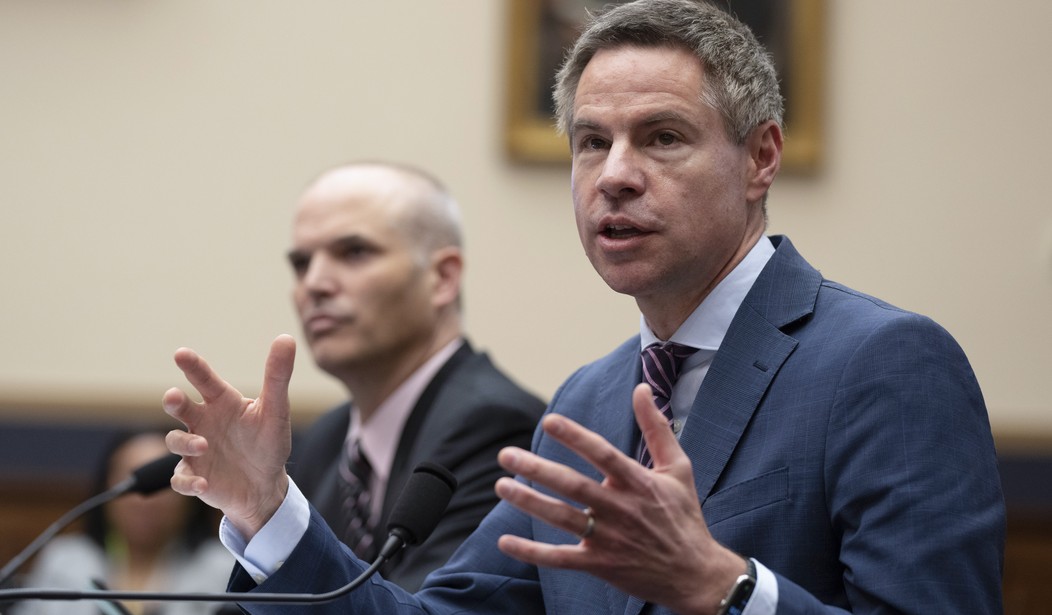The “[insert-nefarious-thing here]-industrial complex” terminology is arguably overused in political nomenclature, but, in most cases, its use is not without merit.
All such linguistic constructions describe the morally hazardous merger of private (corporate) and public (government) interests based on skewed incentives that undermine some moral, universal public good like any of the numerous rights enshrined in the context of the U.S. in the Bill of Rights.
One such instance where the term is warranted is the censorship-industrial complex, which describes collusion between government and corporate actors to regulate speech and which threatens the First Amendment guarantee of freedom of expression.
Via Michael Shellenberger’s testimony to The House Select Committee on the Weaponization of the Federal Government, March 9, 2023:
In his 1961 farewell address, President Dwight Eisenhower warned of “the acquisition of unwarranted influence… by the military-industrial complex.” Eisenhower feared that the size and power of the “complex,” or cluster, of government contractors and the Department of Defense would “endanger our liberties or democratic processes.” How? Through “domination of the nation’s scholars by Federal employment, project allocations, and the power of money.” He feared public policy would “become the captive of a scientific-technological elite.”
Eisenhower’s fears were well-founded. Today, American taxpayers are unwittingly financing the growth and power of a censorship-industrial complex run by America’s scientific and technological elite, which endangers our liberties and democracy. I am grateful for the opportunity to offer this testimony and sound the alarm over the shocking and disturbing emergence of state-sponsored censorship in the United States of America.
I have previously written elsewhere about Eisenhower’s brilliant and often misunderstood farewell address and its implications for the technocracy currently unfolding beyond the oft-cited military-industrial complex and national security apparatus.
Continuing from Shellenberger’s testimony:
The Twitter Files, state attorneys general lawsuits, and investigative reporters have revealed a large and growing network of government agencies, academic institutions, and nongovernmental organizations that are actively censoring American citizens, often without their knowledge, on a range of issues, including on the origins of COVID, COVID vaccines, emails relating to Hunter Biden’s business dealings, climate change, renewable energy, fossil fuels, and many other issues.
The so-called Twitter Files — a trove of internal Twitter communications documenting how the FBI and other alphabet agencies silently directed Twitter’s censorship campaigns without the Congressional oversight guaranteed by the separation of powers doctrine — is just the tip of the iceberg.
An exhaustive documentation of all the provable instances of undue state influence over the media would fill volumes. But one of the most glaring and demonstrative of this clandestine conjoining of the state and media was illustrated by the $600 million contract that Amazon’s Jeff Bezos, owner of The Washington Post, inked with the CIA to construct for the agency a cloud computing service.
This is obviously a conflict of interest for a newspaper — a highly influential one at that which largely controls the zeitgeist, especially among the D.C. governing class — that is ostensibly tasked with holding the government accountable. Instead, unless one subscribes to the notion that over a half-billion dollars doesn’t come with strings attached, their entwined financial interests virtually guarantee the opposite.
Again, as Shellenberger describes in great detail in his testimony (which you should read in its entirety if you are so inclined), the CIA-Washington Post relationship is one of literally thousands of incestuous connections:
The Stanford Internet Observatory, the University of Washington, the Atlantic Council’s Digital Forensic Research Lab, and Graphika all have inadequately-disclosed ties to the Department of Defense, the C.I.A., and other intelligence agencies. They work with multiple U.S. government agencies to institutionalize censorship research and advocacy within dozens of other universities and think tanks.”
They could fill a classic Glenn Beck-style chalkboard panorama a hundred times over.
